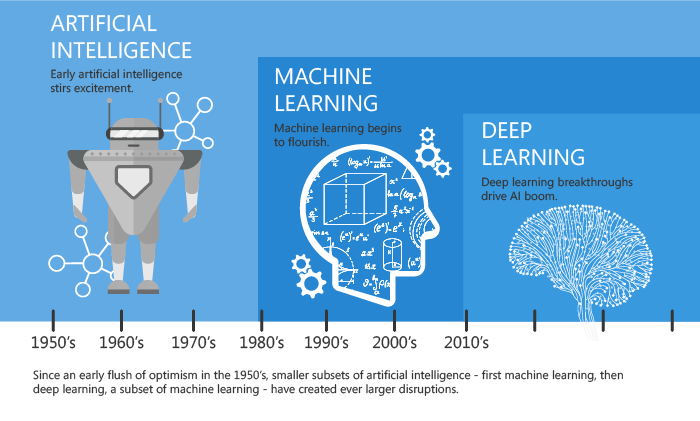"People of the future may suffer not from an absence of choice but from a paralysing surfeit of it. They may turn out to be victims of that peculiarly super-industrial dilemma....."- Toffler
In his book, Future Shock, American futurist and writer Alvin Toffler once said the statement in our heading. Nakakalungkot mang aminin, bes, we are the people of the future, and we will be carrying this curse as long as we breath.
Tama ka, hindi natin ito pinili. Unti-unti, nare-realize natin na nagiging alipin na tayo ng gadgets, ng Android. It is as if, we could no longer breath, and talk. and think without them....
Tingin ko, hindi sinabi ni Toffler un nang wala lang. Its almost an accepted norm that we human beings of the 21st century are exposed and most of the times hooked into Android gadgets. From the year 1940, where the first Artificial Intelligence machine proto-type was developed ng imperyalistang US, until this very moment, obvious naman na talagang inherent na sa ating mga tao ang pag-rely sa Android and artificial intelligence, in its strict sense, for whatever reason.
Mayroon tayong inner attachment sa mga bagay na may kakayahang gawin ang mga ginagawa ng tao. Sino ba namang hindi mahuhumaling na makapag-ari ng isang bagong Android gadget!
Inadvertently, naa-akit tayo sa social status na dala ng gadget na ito. Most of the times, we fell victim (being helpless consumers) to various models and modification ng isang gadget, be it a phone, a laptap, or a piece of self-learning devices. At sa sobrang bilis ng pagpapalit ng mga modelo at features ng mga gadget na ito, madalas hindi na tayo makasabay.

From the year 1940, where the first Artificial Intelligence machine proto-type was developed ng imperyalistang US, until this very moment, obvious naman na talagang inherent na sa ating mga tao ang pag-rely sa Android and artificial intelligence, in its strict sense, for whatever reason. Mayroon tayong inner attachment sa mga bagay na may kakayahang gawin ang mga ginagawa ng tao.
Sino ba namang hindi mahuhumaling na makapag-ari ng isang bagong Android gadget! Inadvertently, naa-akit tayo sa social status na dala ng gadget na ito. Most of the times, we fell victim (being helpless consumers) to various models and modification ng isang gadget, be it a phone, a laptap, or a piece of self-learning devices. At sa sobrang bil9is ng pagpapalit ng mga modelo at features ng mga gadget na ito, madalas hindi na tayo makasabay.
"Future shock is the shattering stress and disorientation that we induce in individuals by subjecting them to too much change in too short a time." - Toffler
Let's face it, gradually, we are being forced to learn and re-learn technology; be it by choice or by necessity.
The Internet of All Things
Ed Oswold of DIGITAL TRENDS explained the "internet" of all things in households. Simply put, we are now in the age were almost all of the stuff in our own homes are automated by the internet, sort of A.I. engines that will make our doors locked automatically through a pre-defined command. Then you have a face-detection technology that opens or unlocked a particular device should it recognize an attempting familiar face.
AI in house or public places revolves around the idea of "smart hub", or simply put, a galaxy of wireless router that has its own language system which performs a pre-defined task when triggered.
Sounds spooky bes, parang haunted house lang. Imagine light bulbs opens by itself when it detects infrared heat?
Pero nangyayari talaga ito bes. Hindi lang ito nakikita sa pelikula nila James Bond or Mission Impossible.
Sa katunayan, a multitude of wireless technologies now exist for smart home wanabe owners. We have — Zigbee, Z-Wave, Bluetooth, Wi-Fi, and more. And there’s more smart home platforms to consider than ever before too. Isa-isahin natin ung mga nakita ko
Lahat ng mga na highlight sa taas ay may kakayahang sumunod sa ating gusto basta bigyan natin ng pre-defined commands, sa isang pinsot lang. Well, thanks to better AI and chatbots that understand context a whole lot better than ever before.
Aside from making our lives more convinient, and our tasks more productive, more jobs will also be automated. In factories, mass production will see much increase in prosuction rate, surpassing Ford's computation. Even journalist’s work on writing the news (don’t worry, we aren’t going anywhere).
At dahil nga intelligent, AI machines and gadgets are also capable of "learning" our life patterns and preferences, thus increasing antipation in our decision-making process. Imagine, gadgets and machines may well decide for us.
Applying the Law of Nature
Sabi ni Newton, every action has a corresponding counter reaction, or something like that. While we see the promising prospects of artificial intelligence and android in our lifestyle, we also have to anticipate its counter-development effects.
Mass Lay-off and Employment Insecurity
Minsan nang napag-usapan sa android forums ang pag-remove sa human component from food service. Imagine bots taking our orders and humanoid serving our foods which are systematically cooked in time-calculated cooking ranges. On top of that, delivery services may be done by drones. Well, thats a humongous retrenchment and mass lay-off of human workers. Kung buhay pa si Karl Marx, Vladimir Lenin at Mao Tsetung malamang isumpa nila ang 20th- century proletarians!
The Death of "Tongue" Communication
While artificial intelligence and android tech in theory should make things easier, we also have to take into consideration the cons of automizing our lifestyle, lalo na sa konteksto ng pamilya.
We may hear complaints for a long time about the lack of interpersonal communication these days. In the context of this essay, I would call this synthetic relationships. Mga pekeng relasyon, as proliferated by AI bots and android applications.
Sincerity has been the least aspect of non-personal comms. Much that have to worry for communicating with unknown conversants. Talking with an unknown person and building trust is the worst thing that we could do. Diyos ko, ilan na ang nagahasa at naloko ng mga halang na kaluluwa na nagkukubli sa built persona ng isang android app i.e. FB, messenger, taptalk.
To give you a precise example: these days, mas gusto pang titigan ng mrs ko ang Vivo Y51 niya kesa lumingon sa pagmumukha ko!
--------------------------------------------------------------------------------------------------------------------------
To sum things up, artificial intelligence was initially meant to ease our toil, to build relationships and to further enhance our sense of humanity. Android only screws us up kapag we do things outrightly na kabaligtaran ng tunay na dahilan kung bakit ito inimbento.




No comments:
Post a Comment